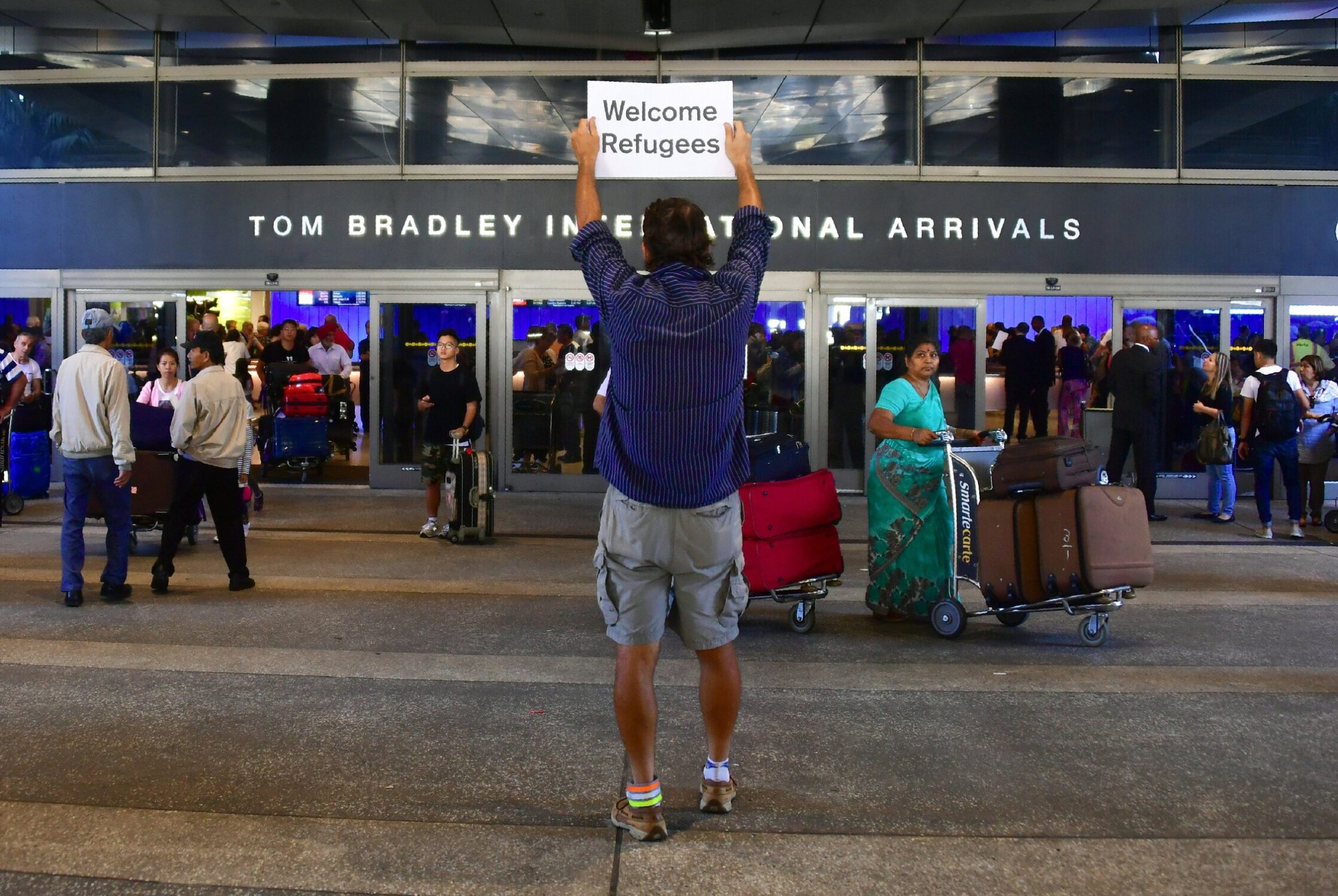The Hill: Why Should Americans Care About Refugee Resettlement?

This piece was originally published in The Hill.
The United States today stands at a crossroads in our history. In the coming weeks, President Trump will decide on the number of refugees the United States is prepared to admit and resettle from around the world in fiscal 2021. All indications are that the president will continue to turn his back on this vital program and further tarnish a proud record of support for women, men, and children driven from their homes. This would be cruel, unnecessary, and a blow to U.S. interests.
The president has already reduced refugee admissions to the lowest levels since the U.S. Refugee Admissions Program began in 1980. Between then and the start of the Trump administration, U.S. presidents had, on average, authorized resettlement ceilings of about 96,000 refugees per year, with actual resettlement numbers averaging about 81,000 annually. For 2018, the first full fiscal year of the Trump administration, the president authorized the admission of only 45,000 refugees. At the time, this was the lowest ceiling in the history of the U.S. Refugee Admissions Program, and only 22,491 were ultimately admitted — also a historic low. For 2019, the President established an even lower ceiling of 30,000. And for the fiscal year 2020, the president continued his assault on refugee resettlement with a ceiling of 18,000. And only about 8,000 have been resettled with only weeks remaining in the fiscal year.
With a presidential determination for 2021 now looming, all indications are that the president will further lower the refugee admissions ceiling. As former assistant secretaries of State for Population, Refugees, and Migration in the prior Republican and Democratic administrations, we believe this will be a grave error, and that the president should instead substantially increase refugee resettlement.
For one thing, there is a growing worldwide displacement crisis. Nearly 80 million people are displaced by conflict, persecution, and human rights violations around the world, including more than 26 million refugees outside their home countries. Refugee resettlement cannot be the answer to all the world’s refugees. Still, for a modest number of the most vulnerable, including those who have lived as refugees for years or decades, resettlement is a critical and life-saving option.
Why should Americans care?
First, and most importantly, we should care because our common humanity demands that we care, and refugee resettlement provides hope for a brighter future to those around the world who have been subjected to egregious violations of their rights. In fact, since the overwhelming bipartisan passage of the Refugee Act of 1980, the United States has successfully resettled more than 3 million refugees.
Second, refugees — from Albert Einstein to Madeleine Albright to Sergey Brin — have not only enriched our country in fields like science, politics, and technology, but refugees have also made enormous economic contributions through relentless entrepreneurialism that creates businesses, jobs, and tax revenues.
Across the United States, refugees have revitalized declining communities. In Buffalo, New York, for example, refugees and other immigrants contributed $3.1 billion to the metropolitan area’s GDP in 2014—about 5.7 percent of the area’s total GDP that year, according to a report by International Institute and the New American Economy. Indeed, over a recent 10-year period, some 12,000 refugees had settled in Buffalo, stalling decades of population decline. One draft study from the Department of Health and Human Services showed that over the decade ending in 2014, refugees in the United States generated $63 billion more in government revenue than was spent on public services for them. The Trump administration ignored its report on this matter.
No one is suggesting the United States should be the sole or even primary option for refugees in need of resettlement. But merely by returning to the more generous numbers of all U.S. administrations since 1980, the United States would signal a willingness to share international humanitarian responsibilities with governments such as Turkey, Jordan, Uganda, Ethiopia, and many others hosting many hundreds of thousands and even millions of refugees. Moreover, our actions would encourage other governments to do much more to resettle refugees.
Finally, while the COVID-19 pandemic requires careful implementation of responsible public health measures, it is not a justification to curb this critical program — especially as the program has already implemented extensive health screening prescribed by the Centers for Disease Control and Prevention for all refugees traveling to the United States.
For all these reasons, refugee advocates on both sides of the political aisle, like ourselves, are calling for humane policies that promote both U.S. interests with the principles of humanitarianism. We are calling for a return to U.S. leadership on this issue, as small investments in time, money, and compassion can yield immense benefits both to those refugees in need and the country that welcomes them.
Arthur E. Dewey was United States Assistant Secretary of State for Population, Refugees, and Migration from 2002–2005, during the George W. Bush administration. Eric P. Schwartz was United States Assistant Secretary of State for Population, Refugees, and Migration from 2009–2011, during the Obama administration, and is now the president of Refugees International.